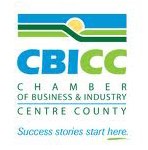Well, the market must be up, we’re seeing it again. It’s all over the TV, radio, and popular financial press, that you can easily identify the Active Mutual Funds that far and away outperform the Passive Mutual Funds. The temptation being? All you have to do is study the active fund manager’s past performance and invest before the market goes up, but nothing could be further from the truth.
According to Goldman Sachs Global Investment Research, 88% of hedge funds, 80% of large cap value, 65% of large cap core, and 67% of small cap mutual funds underperformed their index in 2012. All of these are actively managed.
According to the Center for Research in Security Prices (CRSP), 79.51% of active equity mutual fund managers failed to beat their index for the 10 years ending in 2011.
The active strategy just doesn’t work.
Generally, active fund managers select investments by analyzing companies and projecting their findings into the future. What they cannot account for is the effect that tomorrow’s unknowable and unpredictable news will have on a company’s performance and stock price. All of this analysis and projection costs money, which is one of the reasons why you pay more to purchase active funds than you do passive funds.
Passive managers generally do not pick stocks that someone thinks will do well in the future. They do not chase last year’s winners, and they do not try to “time the market” by guessing when to get in and when to get out.
We are proponents of a form of passive investing that we call the Structured Academic Approach. Our clients’ portfolios, on average, contain almost 13,000 unique holdings, allocated among at least 13 different asset classes and 44 different free-market economies.
But, strange as it seems, active managers often act as if free markets don’t work. Free markets are uninhibited markets where a stock is worth what a buyer is willing to buy it for, and what a seller is willing to sell it for. Active managers hope to find a stock that has escaped the reality of the free markets, so that they can make a profit. Sure, there will be winners along with the losers, but doesn’t this resemble gambling and speculating more than it resembles prudent investing?
It has been shown time and time again that free markets work. Therefore, we consciously do not have any actively managed mutual funds in our investment portfolios. Why pay for turnover and redundancy, i.e. needless transactions under the guise of prudence.
Here is a video we posted on YouTube a few years ago, the industry still want to imply they have the answers.
http://www.youtube.com/watch?v=xDq-0b0kwho&list=UUk__nsOYoNWIG59S4CPGV4Q&index=25




 Clarity Coaching Tips
Clarity Coaching Tips Common Sense Videos
Common Sense Videos It’s Your Money
It’s Your Money
